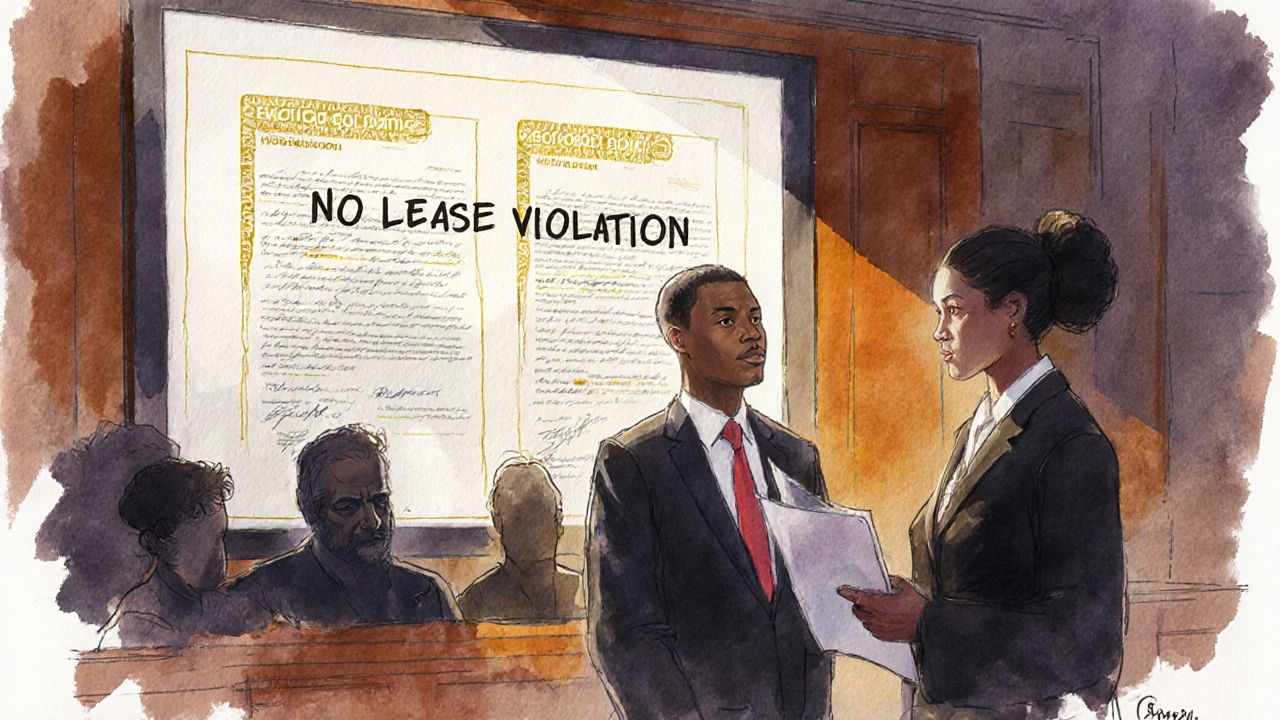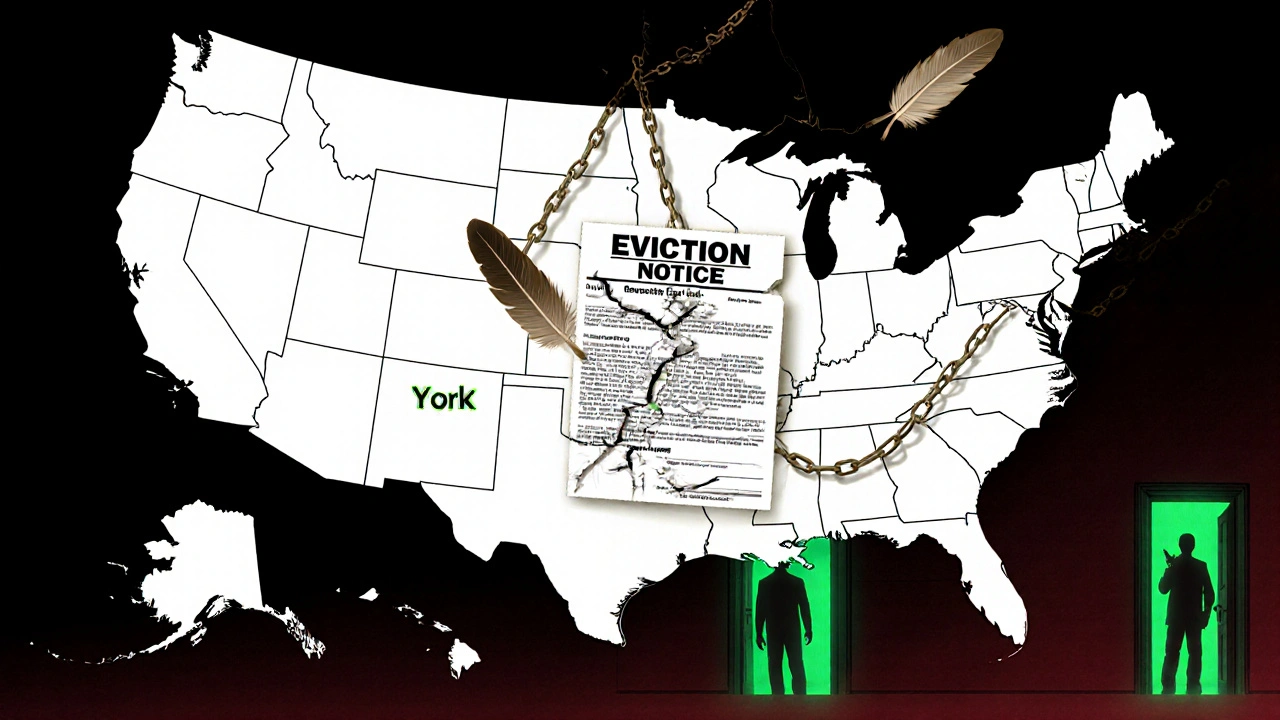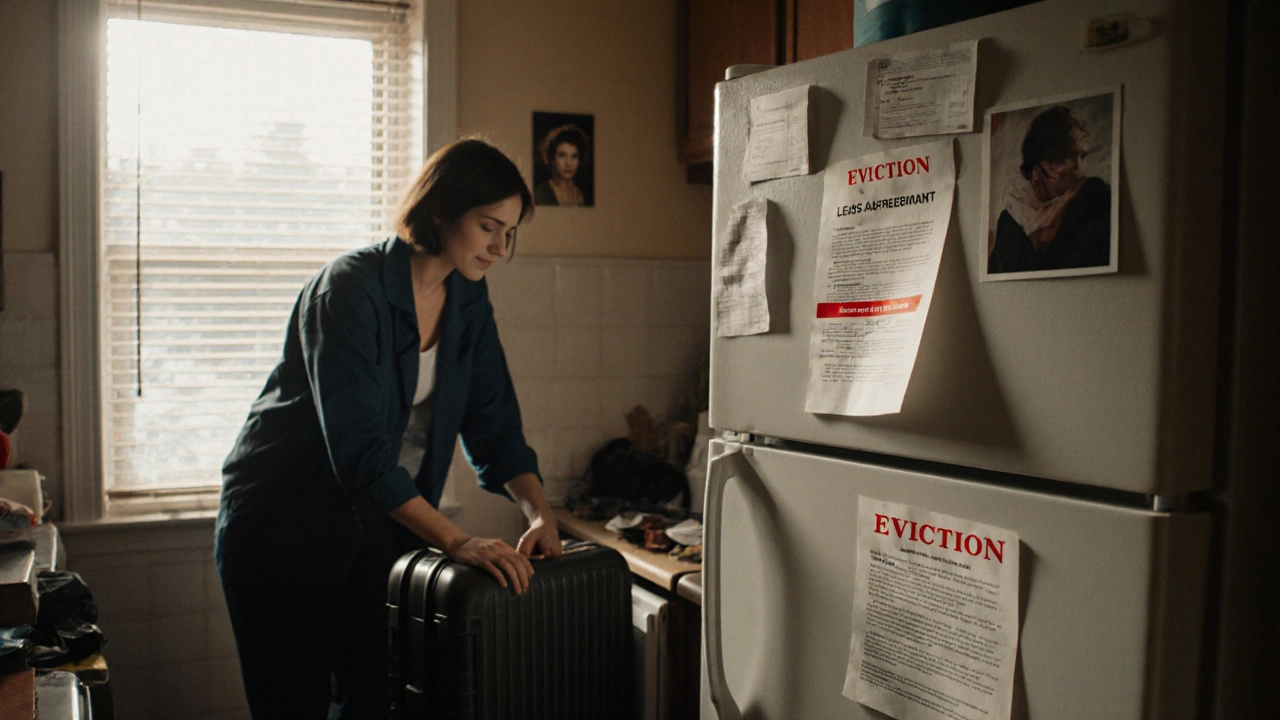Every month, sex workers across the U.S. and other countries face eviction notices not because they missed rent, but because landlords found out what they do for a living. In many places, it’s legal to be a sex worker. But it’s still not legal to have a home. Landlords don’t need proof of illegal activity-just suspicion. A neighbor’s complaint, a police visit, or even a photo posted online can trigger a 30-day notice to quit. And in most states, there’s nothing in the lease that says you can’t be evicted for your job.
Why Sex Workers Are Targeted for Eviction
Sex workers don’t have special legal status when it comes to housing. Even in places where selling sex isn’t criminalized-like parts of Nevada or certain decriminalized zones in Canada-landlords still use vague lease clauses to push them out. Common reasons? "Nuisance," "unauthorized guests," or "conduct detrimental to the property." These terms don’t require evidence. They just need to sound plausible.
In 2023, a study by the Urban Justice Center found that 68% of sex workers surveyed had been threatened with eviction in the past two years. Nearly half were evicted without a court hearing. Many landlords use the threat of police involvement to scare tenants into leaving. One woman in Portland told investigators her landlord showed up with a police officer and said, "I don’t care if you’re not breaking the law-I don’t want this kind of business here."
There’s no federal law protecting sex workers from housing discrimination. Even the Fair Housing Act doesn’t cover employment status as a protected class. That means a landlord can legally refuse to rent to someone because they’re a sex worker-even if they pay rent on time, keep the place clean, and don’t bring clients into the unit.
Where Legal Protections Exist
Some cities have stepped in. In San Francisco, the Human Rights Commission ruled in 2021 that evicting someone solely because they’re a sex worker violates local anti-discrimination laws. The city now requires landlords to prove actual harm-not moral discomfort-to justify an eviction. If a tenant is paying rent and not violating lease terms, the landlord can’t evict them just because they’re a sex worker.
Similarly, in New York City, the Department of Housing Preservation and Development issued guidance in 2022 stating that tenants cannot be evicted based on their occupation, including sex work. The city’s human rights law protects people from discrimination based on actual or perceived lawful source of income. That includes income from sex work, even if it’s not technically legal under state law.
California’s AB 1264, passed in 2023, explicitly prohibits landlords from using a tenant’s lawful occupation-including sex work-as grounds for eviction or refusal to rent. It’s one of the first state-level laws in the U.S. to do this. The law also requires landlords to provide written notice if they’re denying a rental application, and to state the specific legal reason.
Outside the U.S., countries like New Zealand and the Netherlands have broader decriminalization frameworks that include housing rights. In New Zealand, the Human Rights Act protects against discrimination based on occupation, and courts have upheld that sex workers are entitled to the same housing rights as any other tenant.
What a Lease Actually Says (And What It Doesn’t)
Most leases don’t mention sex work. That’s the point. Landlords rely on silence. They don’t need to write "no sex workers" into the lease-they just need to say "no illegal activity" and assume everyone will assume that includes sex work.
But here’s the catch: if sex work isn’t illegal where you live, then it’s not a lease violation. In states like Nevada, where some counties allow licensed brothels, or in cities where decriminalization has taken root, renting to a sex worker is legally no different than renting to a nurse, a teacher, or a freelance graphic designer.
Still, many landlords don’t know the law-or choose to ignore it. That’s why tenants need to know their rights. If your lease says "no illegal activity," and your work is legal, then you’re not violating it. If your lease says "no commercial activity," and you’re working from home without clients coming in, that’s not commercial activity-it’s self-employment.
Document everything. Keep copies of your lease, rent receipts, and any communication with your landlord. If you’re threatened with eviction, write down the date, time, and what was said. Even a text message can become evidence.

How to Fight an Unlawful Eviction
If you get an eviction notice and you believe it’s based on your work, don’t leave. Don’t sign anything. Don’t assume it’s legal just because the landlord says so.
Here’s what to do:
- Check your local housing laws. Search for "tenant rights [your city]" or contact your local housing authority. Many cities have free legal aid for renters.
- Don’t move out voluntarily. If you leave, you lose your right to fight the eviction in court. Even if you’re scared, stay in the unit.
- Request a copy of the eviction notice in writing. Verbal notices aren’t legally binding in most places. You need the official document.
- Contact a tenant rights organization. Groups like the Sex Workers Outreach Project (SWOP), the Red Umbrella Fund, or local legal aid clinics can help you file a response to the eviction.
- File a response in court. You have a limited time-usually 5 to 10 days-to respond. If you miss it, you’ll lose by default.
In several cases, courts have thrown out evictions when landlords couldn’t prove the tenant violated the lease. One case in Los Angeles in 2024 involved a sex worker who was evicted after a neighbor complained about "frequent visitors." The court found no evidence of illegal activity, no lease violation, and ruled the eviction was discriminatory. The tenant was reinstated.
What to Do If You’re Being Harassed
Harassment from landlords doesn’t always come in the form of eviction notices. It can be:
- Unannounced inspections every week
- Turning off utilities "by accident"
- Threatening to call the police for "suspicious activity"
- Refusing to make repairs unless you "behave"
All of these are illegal. They’re considered "constructive eviction"-making the home so unbearable you’re forced to leave. In many states, this gives you the right to break your lease without penalty, and even sue for damages.
Keep a log. Record dates, times, what happened, and who was involved. Take photos if possible. Save emails and texts. This isn’t just for your peace of mind-it’s evidence.
Some organizations, like the National Center for Lesbian Rights and the Transgender Law Center, offer free legal help to sex workers facing housing discrimination. You don’t need to be a U.S. citizen to get help. Immigration status doesn’t affect your right to safe housing.

What’s Changing-and What’s Not
Progress is slow, but it’s happening. In 2025, bills to protect sex workers’ housing rights are pending in five more states, including Illinois, Washington, and Massachusetts. Advocates are pushing for federal legislation that would classify housing discrimination against sex workers as a civil rights violation.
But until then, the burden falls on tenants to know their rights and speak up. Many sex workers stay silent out of fear-of being reported, shamed, or arrested. But silence doesn’t protect you. Knowledge does.
There’s no law that says you have to hide who you are to have a roof over your head. If you’re paying rent, following the rules, and not causing harm, you deserve to stay.
Frequently Asked Questions
Can a landlord evict me just because I’m a sex worker?
In most U.S. states, yes-because there’s no federal law protecting sex workers from housing discrimination. But in cities like San Francisco, New York, and states like California, it’s illegal to evict someone solely because of their occupation, including sex work. If your work is legal where you live, and you’re not breaking your lease, then the eviction may be unlawful.
What if my lease says "no illegal activity"?
If sex work is legal in your city or state, then it’s not illegal activity. Landlords can’t use that clause to evict you unless you’re actually breaking the law-like soliciting on the street in a place where it’s banned, or bringing clients into the unit in violation of local zoning rules. The key is whether your work is lawful, not whether the landlord approves of it.
Can I be denied housing if I disclose I’m a sex worker?
In most places, yes. Landlords can refuse to rent to you if you disclose your work-unless you live in a city or state with explicit protections. But if you don’t disclose it and later they find out, they still can’t evict you unless you violated the lease. Many sex workers choose not to disclose to avoid discrimination.
Do I need to tell my landlord if I’m a sex worker?
No. You are not legally required to disclose your occupation to your landlord. Your job is private information. Landlords can’t ask you directly about it in most places, and even if they do, you’re not obligated to answer. You only need to follow the terms of your lease.
What if I’m undocumented?
Your immigration status doesn’t affect your right to safe housing. Federal law protects all tenants, regardless of citizenship. Landlords cannot report you to immigration just because you’re a sex worker. If they threaten to do so, that’s illegal intimidation. Contact a legal aid group that works with immigrant tenants immediately.
Next Steps If You’re Facing Eviction
If you’re being threatened with eviction:
- Save all communication-texts, emails, letters.
- Find your local tenant rights group. Search "tenant rights [your city]" or contact the National Housing Law Project.
- Don’t move out. Even if you’re scared, staying puts you in a stronger legal position.
- File a complaint with your city’s human rights commission if you believe you’re being discriminated against.
- Reach out to organizations like SWOP-USA or the Red Umbrella Fund-they offer legal referrals and emergency housing support.
Housing is a human right. Your job doesn’t change that. You have the right to a safe, stable place to live-and the law, in more places than ever, is starting to catch up.
